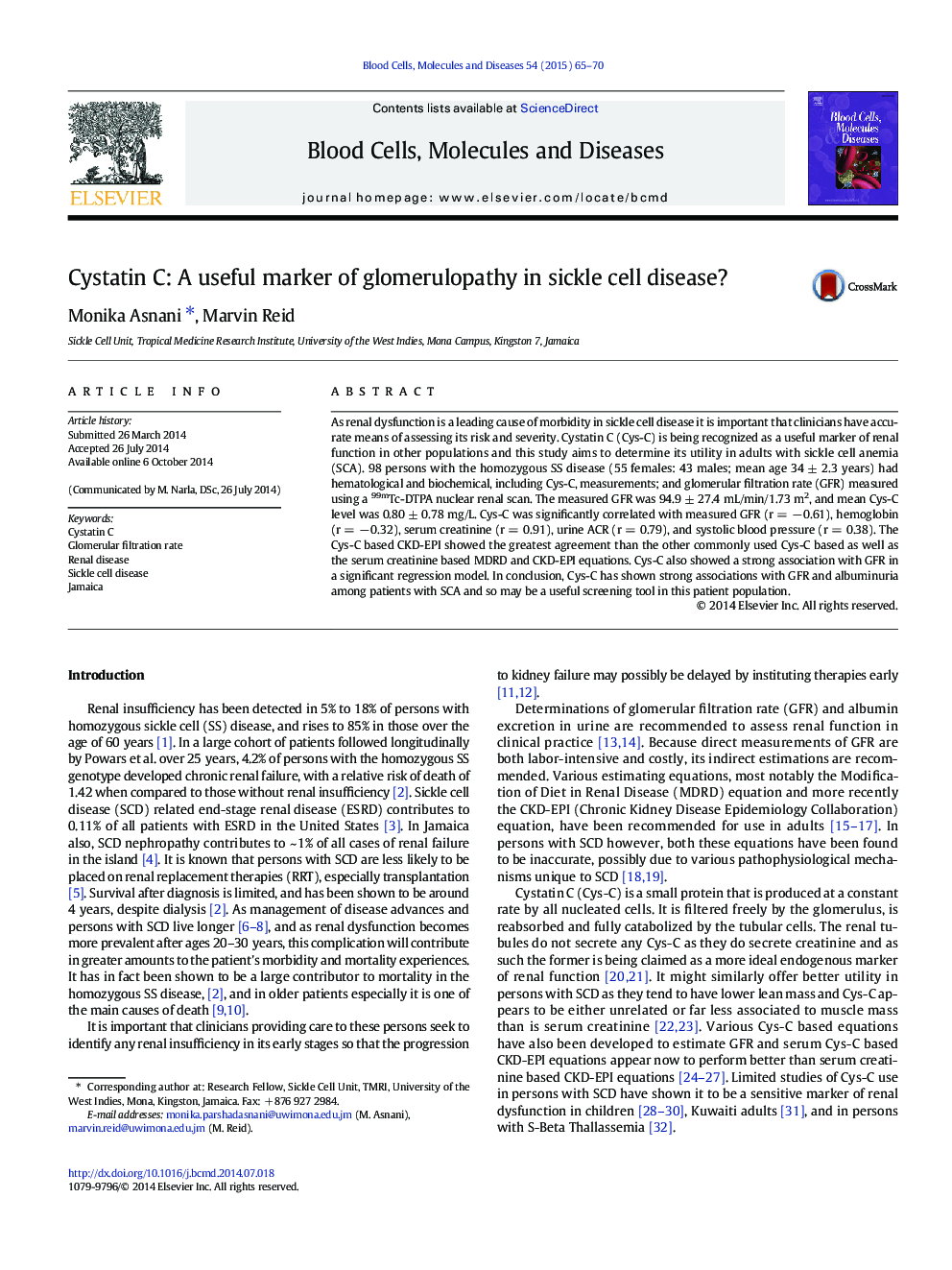| Article ID | Journal | Published Year | Pages | File Type |
|---|---|---|---|---|
| 5913498 | Blood Cells, Molecules, and Diseases | 2015 | 6 Pages |
As renal dysfunction is a leading cause of morbidity in sickle cell disease it is important that clinicians have accurate means of assessing its risk and severity. Cystatin C (Cys-C) is being recognized as a useful marker of renal function in other populations and this study aims to determine its utility in adults with sickle cell anemia (SCA). 98 persons with the homozygous SS disease (55 females: 43 males; mean age 34 ± 2.3 years) had hematological and biochemical, including Cys-C, measurements; and glomerular filtration rate (GFR) measured using a 99mTc-DTPA nuclear renal scan. The measured GFR was 94.9 ± 27.4 mL/min/1.73 m2, and mean Cys-C level was 0.80 ± 0.78 mg/L. Cys-C was significantly correlated with measured GFR (r = â 0.61), hemoglobin (r = â 0.32), serum creatinine (r = 0.91), urine ACR (r = 0.79), and systolic blood pressure (r = 0.38). The Cys-C based CKD-EPI showed the greatest agreement than the other commonly used Cys-C based as well as the serum creatinine based MDRD and CKD-EPI equations. Cys-C also showed a strong association with GFR in a significant regression model. In conclusion, Cys-C has shown strong associations with GFR and albuminuria among patients with SCA and so may be a useful screening tool in this patient population.
